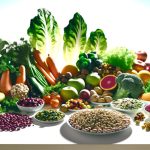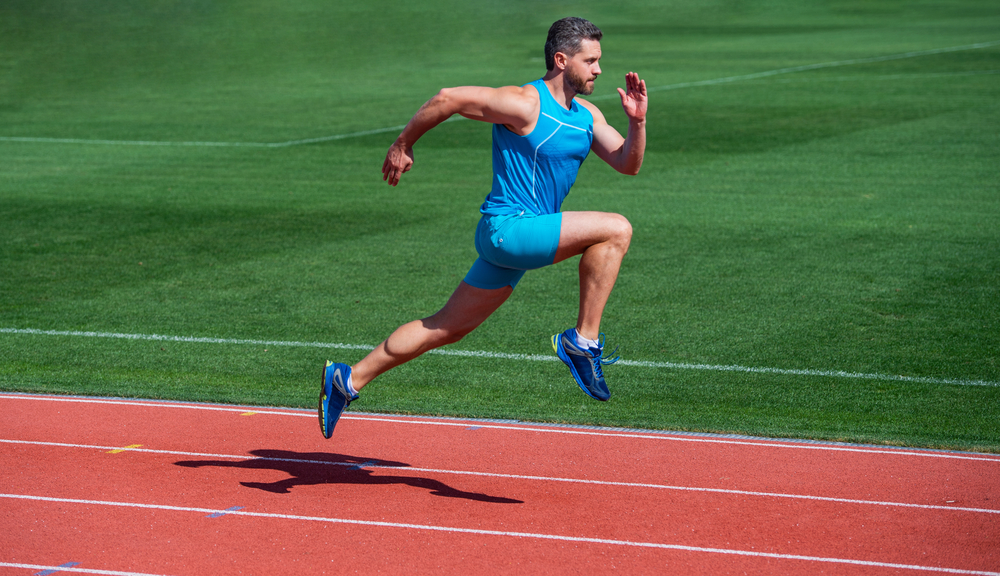Introduction to Natural Energy and Athletic Performance
The importance of whole foods in enhancing athletic performance
Whole foods play a pivotal role in enhancing athletic performance. Unlike processed foods, which often lack essential nutrients, whole foods provide a rich source of vitamins, minerals, and other compounds necessary for energy production, muscle recovery, and overall health. Athletes who prioritize whole foods in their diets can expect improved endurance, strength, and recovery times, which are crucial for competitive success.
Understanding the body’s energy systems
The human body relies on several energy systems to fuel physical activity. These include the phosphagen system for quick bursts of energy, the glycolytic system for moderate-duration activities, and the oxidative system for long-duration endurance events. Whole foods, particularly those high in complex carbohydrates and healthy fats, support these energy systems by providing a steady supply of fuel that can be readily converted into energy.
The drawbacks of processed energy supplements
While processed energy supplements promise quick and convenient boosts, they often come with drawbacks. Many contain high levels of simple sugars, leading to rapid spikes and crashes in blood sugar levels, which can impair performance. Additionally, they may lack the micronutrients found in whole foods that are essential for optimal health and long-term athletic performance.
The connection between diet and peak athletic ability
Athletes’ diets are inextricably linked to their performance. A diet rich in whole foods supports the body’s physiological functions, including muscle contraction, oxygen delivery, and hormone production. By providing the body with high-quality nutrients from whole foods, athletes can maximize their training adaptations and reach their peak athletic abilities.
Macronutrients: The Energy Providers
Carbohydrates: Fueling the Engine
Carbohydrates are the primary fuel source for athletes, serving as the engine’s premium gasoline. During digestion, carbohydrates break down into glucose, which is then stored as glycogen in the muscles and liver. This glycogen is crucial for sustaining energy during both short bursts of intense activity and longer endurance events. Athletes can optimize their glycogen stores by consuming whole foods rich in unrefined carbohydrates, such as wholegrain breads, cereals, fruits, and vegetables. The recommended intake of carbohydrates varies based on the intensity and duration of exercise, but it generally ranges from 3 to 12 grams per kilogram of body weight per day.
Proteins: Building and Repairing Muscle
Proteins are the building blocks of muscle, playing a vital role in repair, growth, and maintenance. While carbohydrates are the primary energy source, proteins contribute to the repair and rebuilding of muscle tissue post-exercise. Athletes’ protein needs are slightly higher than those of non-athletes, with recommendations ranging from 1.2 to 2.0 grams per kilogram of body weight per day. High-quality protein sources include lean meats, dairy products, eggs, and plant-based proteins such as legumes and soy.
Fats: A Sustained Energy Source
Fats are a dense energy source, providing sustained fuel for long-duration, low to moderate-intensity exercise. They are essential for the absorption of fat-soluble vitamins and the production of hormones. Athletes should focus on consuming healthy fats from sources like olive oil, nuts, seeds, and avocados, while minimizing intake of saturated and trans fats. The recommended fat intake for athletes is similar to that of the general population, constituting 20 to 35% of total daily calories.
Balancing macronutrients for optimal performance
For peak performance, athletes must balance their intake of carbohydrates, proteins, and fats. This balance will vary depending on individual needs, training regimens, and specific athletic goals. A dietitian can help tailor a macronutrient plan that supports an athlete’s training and competition schedule. Generally, a balanced plate for an athlete might include a rich source of carbohydrates, a moderate portion of protein, and a small amount of healthy fats, complemented by a variety of fruits and vegetables to ensure adequate micronutrient intake.
Micronutrients: The Vital Role in Performance
Vitamins: Essential for Energy Metabolism
Vitamins play a crucial role in the body’s energy metabolism, acting as coenzymes that facilitate the conversion of food into energy. B vitamins, in particular, are vital for this process. Thiamine (B1), riboflavin (B2), niacin (B3), pantothenic acid (B5), and pyridoxine (B6) are all involved in the metabolic pathways that convert carbohydrates, fats, and proteins into ATP, the energy currency of the cell. Athletes need to ensure an adequate intake of these vitamins to support their increased energy demands.
Minerals: Supporting Muscle Function and Hydration
Minerals such as calcium, magnesium, sodium, potassium, and chloride are essential for muscle contraction, nerve transmission, and maintaining fluid balance. During intense exercise, athletes lose minerals through sweat, which can lead to electrolyte imbalances and decreased performance. Consuming mineral-rich foods like leafy greens, nuts, seeds, and whole grains can help maintain optimal muscle function and hydration levels.
Antioxidants: Combating Exercise-Induced Oxidative Stress
Exercise can increase the production of free radicals, leading to oxidative stress and potential damage to cells. Antioxidants such as vitamins C and E, selenium, and flavonoids help neutralize these free radicals. Foods rich in antioxidants, like berries, citrus fruits, and vegetables, can support the body’s defense against oxidative stress and aid in recovery post-exercise.
Phytonutrients: Enhancing Immunity and Recovery
Phytonutrients, found in a variety of plant-based foods, have been shown to enhance immunity and aid in recovery. These compounds, such as carotenoids, polyphenols, and glucosinolates, have anti-inflammatory and antioxidant properties. Incorporating a diverse range of colorful fruits and vegetables into an athlete’s diet can provide a spectrum of phytonutrients that support overall health and athletic performance.
In conclusion, a diet rich in micronutrients is essential for athletes to perform at their best. By focusing on whole foods that provide a wide array of vitamins, minerals, antioxidants, and phytonutrients, athletes can enhance their energy metabolism, support muscle function and hydration, combat oxidative stress, and improve immunity and recovery.
Hydration: The Foundation of Athletic Performance
The role of water in physical performance
Water is the lifeblood of athletic performance. As the most abundant substance in the human body, it plays a critical role in nearly every bodily function, particularly during physical exertion. Adequate hydration is essential for maintaining blood volume, regulating body temperature, and ensuring muscle function. When an athlete is dehydrated, even by a small amount, it can lead to a significant decrease in performance, characterized by fatigue, decreased coordination, and muscle cramps. Therefore, maintaining optimal hydration levels before, during, and after exercise is paramount for athletes looking to perform at their best.
Electrolytes and their importance in maintaining performance
Electrolytes, such as sodium, potassium, calcium, and magnesium, are minerals that carry an electric charge and are vital for the physiological processes that keep the body functioning properly. They regulate nerve and muscle function, hydrate the body, balance blood acidity and pressure, and help rebuild damaged tissue. During intense workouts or competitions, athletes lose electrolytes through sweat, and these losses must be replenished to maintain electrical communication in the body and prevent muscle weakness or excessive fatigue. An imbalance of electrolytes can lead to serious health issues, including cardiac arrhythmia and heat stroke.
Natural sources of hydration and electrolytes
While water is the most straightforward source of hydration, it is not the only one. Natural sources of hydration also include foods with high water content such as cucumbers, watermelon, oranges, and strawberries. These foods contribute to overall fluid intake and provide a variety of vitamins and minerals. For electrolytes, bananas and avocados are rich in potassium, dairy products and leafy greens are excellent sources of calcium, nuts and seeds can provide magnesium, and table salt is a common source of sodium. Coconut water is another natural beverage that contains a balanced mix of electrolytes, making it a great option for rehydration after prolonged physical activity. Athletes should aim to incorporate these natural sources into their diets to maintain hydration and electrolyte balance, especially in preparation for and recovery from intense physical challenges.
Timing Your Nutrition for Maximum Performance
Pre-Workout: Foods for Energy and Endurance
Proper nutrition before exercise can set the stage for optimal performance and recovery. Carbohydrates are the primary fuel source for high-intensity activities, so a pre-workout meal should be rich in carbs to top off muscle glycogen stores. Foods like oatmeal, bananas, and whole-grain pastas provide a steady release of energy. For protein, which supports muscle repair and growth, include options like Greek yogurt or eggs. Timing is crucial; aim to consume this meal 3-4 hours before exercising. For those who need a snack closer to their workout, a small, easily digestible snack 30-60 minutes prior, such as a piece of fruit or a granola bar, can provide a quick energy boost.
During Workout: Maintaining Energy Levels
For workouts exceeding 60 minutes, maintaining energy levels is essential to prevent fatigue and optimize performance. Carbohydrate-rich snacks or drinks can be used to sustain energy. Options include sports drinks, fruits like bananas or oranges, or even small amounts of raisins. These foods help maintain blood glucose levels and delay muscle glycogen depletion. Hydration is also critical, so aim to drink fluids regularly throughout the activity to prevent dehydration.
Post-Workout: Recovery Foods and Nutrients
After exercise, the focus shifts to recovery – replenishing energy stores, repairing muscle tissue, and rehydrating. The ideal post-workout meal includes a combination of carbohydrates and protein. Carbs help to replenish glycogen stores, while protein aids in the repair of damaged muscle tissue. Foods such as sweet potatoes, quinoa, chicken, or salmon are excellent choices. Antioxidant-rich foods like mixed berries or dark chocolate can help combat exercise-induced oxidative stress. For rehydration, water is essential, but in cases of extensive sweat loss, drinks containing electrolytes can be beneficial. Aim to consume this meal within 45 minutes to an hour post-exercise for maximum benefit.
By strategically timing the intake of specific whole foods and nutrients, athletes can enhance their performance, endurance, and recovery. The key is to listen to your body and adjust quantities and timing to suit individual needs and the demands of the specific sport or activity.
Superfoods for Athletes
Plant-Based Proteins
For athletes, protein is essential for muscle repair and growth. Plant-based proteins offer a sustainable and healthful alternative to animal proteins. Foods such as quinoa, lentils, chickpeas, and hemp seeds are not only rich in protein but also provide a wealth of other nutrients including fiber, vitamins, and minerals. Incorporating a variety of plant-based proteins ensures a full profile of essential amino acids and can reduce inflammation, which is crucial for recovery.
Complex Carbohydrates for Long-Lasting Energy
Complex carbohydrates are the athlete’s main fuel source during prolonged and intense exercise. Foods like sweet potatoes, oats, and brown rice release energy slowly, maintaining steady blood sugar levels and keeping the athlete powered throughout their training or event. These carbohydrates also provide essential nutrients such as B-vitamins, which are vital for energy production.
Healthy Fats for Endurance
Fats are a dense source of energy, important for athletes engaged in long-duration sports. Healthy fats, particularly omega-3 fatty acids found in foods like walnuts, flaxseeds, and chia seeds, support cardiovascular health and reduce inflammation. Incorporating these fats into the diet can enhance endurance and aid in the recovery process post-exercise.
Natural Supplements: When Whole Foods Aren’t Enough
While a diet rich in whole foods is ideal, there are times when athletes may need an extra boost. Natural supplements like beetroot juice and spirulina can enhance performance. Beetroot juice is high in nitrates, which improve blood flow and oxygen delivery to muscles, while spirulina is a nutrient-dense algae that can help with endurance and fatigue. It’s important to choose supplements that are as close to their natural form as possible and to use them to complement, not replace, a balanced diet.
By focusing on these superfoods, athletes can ensure they’re receiving the nutrients needed to perform at their best. Whether it’s the protein from legumes, the slow-releasing energy from complex carbs, the endurance support from healthy fats, or the occasional natural supplement, a well-rounded diet is key to athletic success.
Putting It All Together: A Whole Food Plan for Athletes
Creating a balanced whole food diet for athletic performance
To optimize athletic performance, it’s essential to create a diet that provides sufficient energy and nutrients. Athletes should aim for a balance of macronutrients: 45-65% of their calories from carbohydrates, 15-25% from protein, and 20-35% from fats. Whole foods like fruits, vegetables, whole grains, lean proteins, and healthy fats should be the cornerstone of their diet. Carbohydrates should primarily come from complex sources such as whole-grain breads, pasta, and starchy vegetables, while proteins should be lean and varied, including options like chicken, fish, legumes, and dairy. Healthy fats can be sourced from foods like avocados, nuts, and olive oil.
Sample meal plans and recipes
Athletes can start their day with a breakfast of oatmeal topped with berries and nuts, providing a mix of complex carbohydrates, protein, and healthy fats. For lunch, a quinoa salad with mixed greens, chickpeas, and a lemon-tahini dressing offers a high-protein, nutrient-dense option. Dinner could be grilled salmon with a side of roasted sweet potatoes and steamed broccoli, balancing omega-3 fatty acids, carbohydrates, and antioxidants. Snacks might include Greek yogurt with honey and almonds or a banana with peanut butter.
Listening to your body: Adjusting your diet for your specific needs
Every athlete is unique, and it’s crucial to listen to your body and adjust your diet to your specific energy and recovery needs. Pay attention to how different foods affect your performance and recovery. If you’re feeling fatigued, you may need to increase your carbohydrate intake. If you’re not recovering well, you might need more protein or a greater variety of micronutrient-dense foods. Hydration is also key, so ensure you’re drinking enough water and consuming electrolytes, especially during and after intense workouts.
Sustainability and ethical considerations in choosing whole foods
When selecting whole foods, consider the sustainability and ethical impact of your choices. Opt for locally sourced, seasonal produce to reduce your carbon footprint. Choose organic options to minimize exposure to pesticides and support farming practices that are better for the environment. When selecting animal products, consider the welfare of the animals and opt for grass-fed, free-range, and sustainably caught options when possible. By making informed choices, athletes can not only enhance their performance but also contribute to a healthier planet.
READ MORE: Pre-Workout Supplements Are They Effective?
Sources:
https://www.army.mil/article/254967/understanding_the_three_energy_systems_used_during_exercise
https://www.webmd.com/diet/what-to-know-about-micronutrients
https://blog.nasm.org/workout-and-nutrition-timing#:~:text=Hydration%3A%20At%20least%204%20hours,e.g.%2C%20early%20morning%20workouts).









